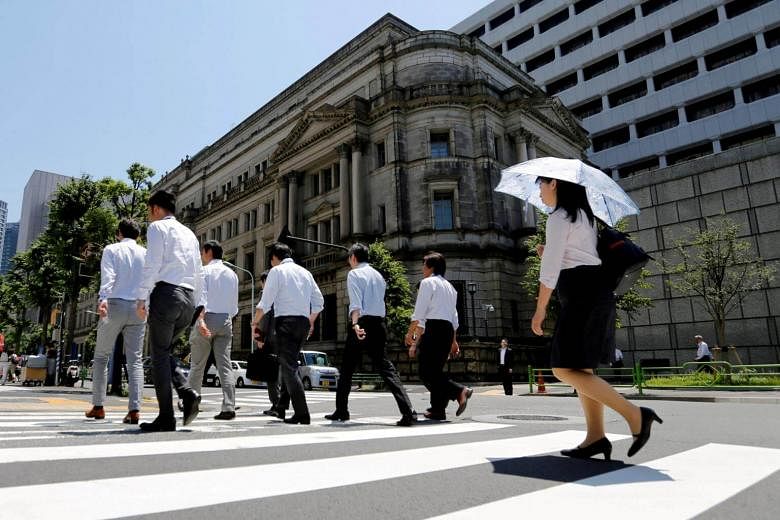TOKYO - Slightly over half of Japanese financial institutions have been exposed to cyberattack since 2015, according to a survey by the Bank of Japan (BOJ).
The central bank said on Monday (Oct 16) that 51 per cent of the 411 respondents had been attacked by hackers, with 10.9 per cent saying that their operations were affected as a result, Kyodo News reported.
The findings were from a survey conducted by BOJ in April on megabanks, local banks, as well as trust banks and credit associations, according to Nikkei Asian Review.
Of the institutions polled, 9.7 per cent said they suffered minor impact from a cyberattack, while 1.2 per cent said noted "significant fallout", Nikkei reported.
The attacks ranged from viruses sent via e-mail, ransomware that threatened to wipe out infected computers' data unless money is paid, to malware that rendered an institution's website inaccessible, said Nikkei.
The survey also found that larger banks were more prone to attacks.
While a majority (85.4 per cent) of the financial institutions surveyed felt that the danger of cyberattack is increasing, three in five said they do not have enough manpower to deal with cyberattacks, Kyodo reported, quoting BOJ.
Still, spending in cybersecurity at the financial institutions has increased.
Banks in Japan are spending an average of 178 million yen (S$2 million) on cybersecurity in the current fiscal year ending March - a 60 per cent increase from the 2015 fiscal year, Kyodo reported.
While the Japanese banking industry has so far avoided a major cyberattack such as a serious information leak, "the scope of cyberattacks has spread rapidly over the past year or two to another level", said Mr Keisuke Kamata, managing director of Financials ISAC Japan, which supports financial institutions' cybersecurity efforts, according to Nikkei.
It is, therefore, vital that Japanese banks create systems that allow them to adapt quickly and efficiently to the ever-changing modes of attack, Mr Kamata added.
The survey was BOJ's first on cybersecurity targeting financial institutions with accounts at the central bank, according to Nikkei. Next, the BOJ hopes to conduct in-depth discussions on cyberdefence with the institutions.

